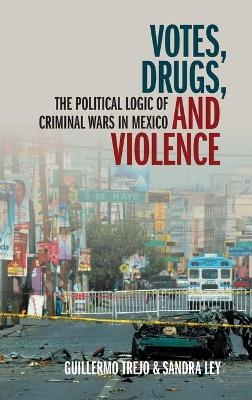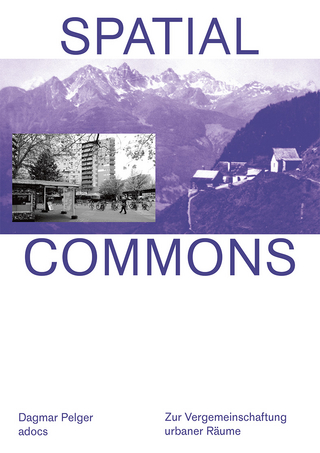
Votes, Drugs, and Violence
Cambridge University Press (Verlag)
978-1-108-84174-0 (ISBN)
One of the most surprising developments in Mexico's transition to democracy is the outbreak of criminal wars and large-scale criminal violence. Why did Mexican drug cartels go to war as the country transitioned away from one-party rule? And why have criminal wars proliferated as democracy has consolidated and elections have become more competitive subnationally? In Votes, Drugs, and Violence, Guillermo Trejo and Sandra Ley develop a political theory of criminal violence in weak democracies that elucidates how democratic politics and the fragmentation of power fundamentally shape cartels' incentives for war and peace. Drawing on in-depth case studies and statistical analysis spanning more than two decades and multiple levels of government, Trejo and Ley show that electoral competition and partisan conflict were key drivers of the outbreak of Mexico's crime wars, the intensification of violence, and the expansion of war and violence to the spheres of local politics and civil society.
Guillermo Trejo is Associate Professor of Political Science at the University of Notre Dame and Director of the Violence and Transitional Justice Lab at the Kellogg Institute for International Studies. He studies political and criminal violence, social movements, and human rights. He is the author of Popular Movements in Autocracies: Religion, Repression, and Indigenous Collective Action in Mexico (2012). Sandra Ley is Assistant Professor at CIDE's Political Studies Division in Mexico City. She studies criminal violence and political behavior.
Part I. A Political Theory of Criminal Violence: 1. The political foundations of peace and war in the gray zone of criminality; Part II. The Outbreak of Inter-cartel Wars: 2. Why cartels went to war: subnational party alternation, the breakdown of criminal protection, and the onset of inter-cartel wars; 3. Fighting turf wars: cartels, militias, and the struggle for drug trafficking corridors; Part III. The State's War Against the Cartels: 4. Why the state's war against the cartels intensified violence: political polarization, intergovernmental partisan conflict, and the escalation of violence; 5. Unpacking the war against the cartels: presidents, governors, and large-scale narco violence; Part IV. The Rise of Criminal Governance: Subverting Local Democracy in War: 6. Why cartels murder mayors and local party candidates: subnational political vulnerability and political opportunities to become local rulers; 7. Seizing local power: developing subnational criminal governance regimes.
| Erscheinungsdatum | 24.08.2020 |
|---|---|
| Reihe/Serie | Cambridge Studies in Comparative Politics |
| Zusatzinfo | Worked examples or Exercises |
| Verlagsort | Cambridge |
| Sprache | englisch |
| Maße | 235 x 160 mm |
| Gewicht | 7000 g |
| Themenwelt | Sozialwissenschaften ► Ethnologie |
| Sozialwissenschaften ► Soziologie | |
| ISBN-10 | 1-108-84174-0 / 1108841740 |
| ISBN-13 | 978-1-108-84174-0 / 9781108841740 |
| Zustand | Neuware |
| Haben Sie eine Frage zum Produkt? |
aus dem Bereich


